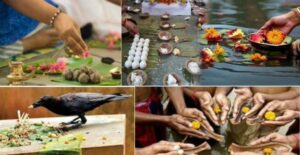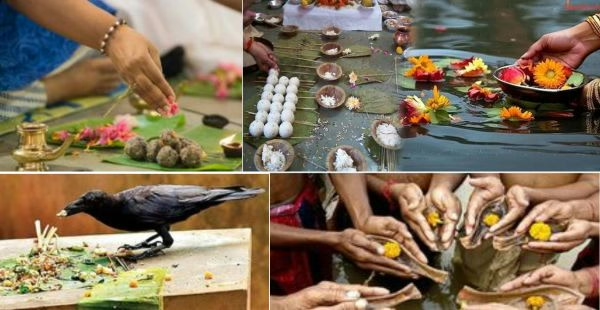
The Spiritual Significance of Pitra Paksha: A Way of Respecting Our Old Folks’ Spirits
Pitr Paksha is one of the most revered periods in Hindu calendars with significant meaning. It is during this period when Hindus honor their forefathers, recognizing how the living are still connected despite death (or afterlife). This two-week period is dedicated for remembering and conducting rites alongside deceased relatives including settling restless souls into everlasting peace. For those who want to understand why such customs remain relevant, this post will detail its definition, practice and spiritual essence.
What is Pitr Paksha?
Pitr Paksha or Shradh lasts for 15 days throughout Bhadrapadra (September-October). According to their beliefs within this duration; deceased ones come down from heaven into human body. Through rituals and offerings made by their living relatives, these souls are said to be released from rebirth cycle forever thereby enjoying an eternal rest. “Pitr” in Sanskrit means ancestors while “Paksha” means a fortnight thus alluding a time completely devoted to worship of ancestors.
The permanence of the situation between those who are alive and those who have died
Ideas of life and death in Hinduism stretch beyond the physical world. The Atma, or soul is eternal beyond both time and space. A person’s soul that has passed on will continue journeying towards moksha which means liberation from rebirth cycles while others may be found tied still they continue to hold them responsible on earth because of some unmet desires.
Pitr Paksha offers us a sacred opportunity to appease, bless and feed these souls on their journey. It enables us to recognize our forebears for how important they are in shaping our lives despite their non-physical existence on this planet.
The spiritual essence of Pitr Paksha
The essence of Pitr Paksha is contained in the Shradh, an act that symbolizes belief and dedication. Therefore, it becomes a key responsibility for every Hindu to perform Shradh rituals as an indication of honoring his or her elders with love, care and other forms of respect. Non-performance towards one’s ancestors could lead to Pitr Dosha according to Hindu beliefs which cause obstacles, hardships or bad luck in life. For this reason, it is considered a duty by Hindus who want blessings from their deceased family members during pitr paksha period.
What has come up is the Cycle of Life, Death, and Rebirth.
Yet, the Hindus highly believed that life is cyclic in nature. : In Hinduism the soul of a person dies and is reborn again depending on the actions that it performed in previous births known as karma. Due to being associated with the Pitr Paksha, this is considered as a special chance to affect such a cycle in a positive manner through various rituals that can be helpful for shinining a soul’s way. In the process of Tarpan, which involves offering water to the ancestral spirits, offering food and water, not only do we presume to be thanking them for services rendered, but also trying in our own small way to in a way help the souls of our ancestors to attain ‘moksha’, that is, try to free their souls from the cycle of birth and death.
If there is one thing that people should never underestimate, that would be the importance of performing rituals.
Hindu devotion for their ancestors is well elaborated during the Pitr Paksha when they use various practices to pay respect to them. It should be noted that often these ritual are done by receding to the river bank for water is considered an important component in any offering to the gods.
1. Tarpan
Tarpan, Pacca and Ghat Prasadam are performed in Pitr Paksha and Tarpan can be considered the major part of it. It also implies providing different stuffs like water with sesame seeds and barley to the spirits of the deceased. From it, the water is said to go realized with the wreak in accomplishing the spirit’s final state of freedom or liberation.
2. Pind Daan
Pind Daan consists of the donation of Pindas which are balls of crushed rice cooked in ghee along with black sesame seeds and barley flour. These Pindas are believed to be an offering performed for the souls of ones ancestors and the purpose of preparing such food is therefore to feed the souls of dead ancestors. It is believed that this act washes the sin, frees the soul from the body and from all vices, and gives peace to the dead.
3. Brahman Bhoj
The other important one is the Brahman Bhoj as the Brahmins who receive the food are seen to represent the ancestors. This is the belief that when food is served to the Brahmins with so much respect and hospitality then the forefathers will bless them.
4. Offering Food to Crows
Actually, according to Hindu mythology, crows are the spiritual avatars of dead people, the messengers. Feeding crows during Pitr Paksha is a very symbolic activity. When the crow takes the offering it is considered that the ancestors have also taken food and are satisfied.
Karma and Its Usages with Regard to the Ancestral Blessing Instruction
Karma is inherent in every aspect of the Hindu life and the same goes for Pitr Paksha. The belief is that in doing so, one and his/her ancestors settle the karmic debts which the ancestor incurred. These debts, known as Rina, are inherent in three forms:These debts, known as Rina, are inherent in three forms:
Deva rina- Obligation towards the gods for the kind of life one leads.
Rishi Rina – Public debt where common people have to offer something back to the sages and the teachers for the knowledge they pass on.
Pitra Rina – Endless debt to ancestors for our very existence one is bound to belong to one Gotra and hence, is bound to Pitra Rina.
As we pay our dues during each and every Pitr Paksha, we pay off our Pitra Rina and in return the ancestors bless us with prosperity, happiness and peace in our life.
It is a mythological belief that offers Spiritual significance of Pitra Paksha to improve relation with ancestors.
There are several stories from mythology which emphasize on the relevance of Pitr Paksha and the extent to which it is considered sacred. If there is one such tale, then it surely is Karna from the great epic Mahabharata and he went to heaven after his death. There is an element of truth in this claim but in heaven he received gold and precious jewels as food. When he questioned the management as to why he is not served proper food, he got to know that despite he has fed many a time’s during his life, he never did feed his forefathers. Understanding this, Karna starts doing Shradh when he is Pitr Paksha and offers food to ancestors which are otherwise known as Pitr Loka. This is to show that Shradh is very crucial in giving rest to the souls of the ancestors.
In this context of the Pitr Paksha, the following are the Spiritual Benefits which a devotee can derive from it.
The show and celebration of Pitr Paksha are not only for material gains but has several Spiritual values attached to it. The spiritual rewards are said to include:The spiritual rewards are said to include:
Healing of Ancestral Karma: You clear and close all the unfinished score you have with your ancestors or your forefathers by performing Shradh and praying.
Blessings for Future Generations: When you respect your forefathers you create a channel through which future generations get to receive their blessings.
Increased Spiritual Awareness: While participating in the rituals of Pitr Paksha you are able to notice a cycle, to gain understanding of your duties towards the afterlife.
Dissolution of Pitr Dosha: But as previously discussed, Pitr Dosha is one of the reasons for delay or hurdles in one’s life. By overcoming these challenges through doing Shradh one can ensure that after death you are given a peaceful and prosperous life.
Specially In Gujarat and Bihar, The places which are recognized as sacred for undertaking the rites associated with Pitr Paksha.
Like Pitr Paksha rituals, these markers of respect may be done within one’s home or at local temple, but there are several special places in India associated with these ancestral ceremonies. One is Gaya in Bihar which is known to have a lot of significance in tourism. It is mentioned in the Hindu mythology that by the boon given by Lord Vishnu, Gaya got the ability to help the souls to get free from the process of reincarnations. That is why there are numerous Hindus visit Gaya in Pitri Paksha to perform the Shradh Pooja in the Vishnupad Temple.
Other sacred spots include:
Haridwar: Being near the banks of the Ganges River Haridwar is considered as an effective place to perform Tarpan & Shradh.
Varanasi: According to hindu beliefs it is suggested that the souls of the ancestors can attain salvation at this historic city during pitr paksha.
Prayagraj (Allahabad): It is important for making offerings to the ancestors where three rivers join together namely Ganga, Yamuna and Saraswati.
Pitra Paksha for instance is a sacred period dedicated to Shraddha in which followers pay their respect to ancestors.
Pitra Paksha can be best described as being a period of contemplation. It calls for people to take some time off from the day-to-day activities of life and get in touch with their culture to remember those who paved way for us. The rituals which are outward are in fact symbols of an inward reality – the fleeting nature of life; the process of birth, dying and rebirth.
Indeed paying tribute to our ancestors is paying tribute to life. It also aligns to one’s perceived self worth as we recognize that we are not only a generation but part of a lineage. And as we feed the souls of our forefathers, their blessings also feed our spirits whilst at the same time, we are leaving something behind for others to remember we too existed on this earth.
Conclusion
Pitr Paksha is more than just the ritualistic practice; it is a spiritual practice which makes our life a blessed and balanced one. Thus, one can reconcile with ancestors, pay karmic debts and integrate with spiritual dimensions easily. With such a great and initial fortnight, the society pays respect to forefathers and ancestral souls ensuring that their soul rests and at the same time being blessed.

